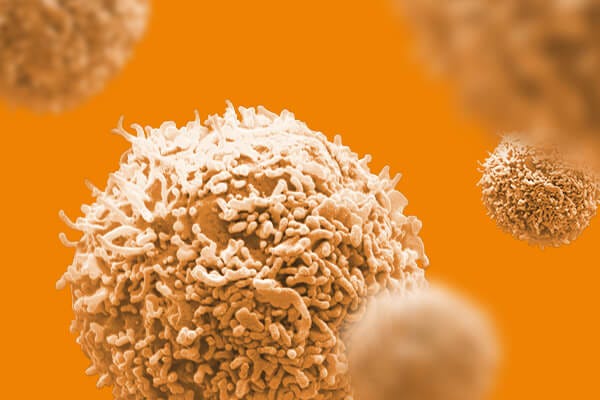技术资料
-
 Buffington DA et al. (JAN 2012) Cell medicine 4 1 33--43
Buffington DA et al. (JAN 2012) Cell medicine 4 1 33--43Bioartificial Renal Epithelial Cell System (BRECS): A Compact, Cryopreservable Extracorporeal Renal Replacement Device.
Renal cell therapy has shown clinical efficacy in the treatment of acute renal failure (ARF) and promise for treatment of end-stage renal disease (ESRD) by supplementing conventional small solute clearance (hemodialysis or hemofiltration) with endocrine and metabolic function provided by cells maintained in an extracorporeal circuit. A major obstacle in the widespread adoption of this therapeutic approach is the lack of a cryopreservable system to enable distribution,storage,and therapeutic use at point of care facilities. This report details the design,fabrication,and assessment of a Bioartificial Renal Epithelial Cell System (BRECS),the first all-in-one culture vessel,cryostorage device,and cell therapy delivery system. The BRECS was loaded with up to 20 cell-seeded porous disks,which were maintained by perfusion culture. Once cells reached over 5 A- 10(6) cells/disk for a total therapeutic dose of approximately 10(8) cells,the BRECS was cryopreserved for storage at -80°C or -140°C. The BRECS was rapidly thawed,and perfusion culture was resumed. Near precryopreservation values of cell viability,metabolic activity,and differentiated phenotype of functional renal cells were confirmed post-reconstitution. This technology could be extended to administer other cell-based therapies where metabolic,regulatory,or secretion functions can be leveraged in an immunoisolated extracorporeal circuit. View Publication -
 Pino CJ et al. (FEB 2013) Nephrology,dialysis,transplantation : official publication of the European Dialysis and Transplant Association - European Renal Association 28 2 296--302
Pino CJ et al. (FEB 2013) Nephrology,dialysis,transplantation : official publication of the European Dialysis and Transplant Association - European Renal Association 28 2 296--302Cell-based approaches for the treatment of systemic inflammation.
Acute and chronic solid organ failures are costly disease processes with high mortality rates. Inflammation plays a central role in both acute and chronic organ failure,including heart,lung and kidney. In this regard,new therapies for these disorders have focused on inhibiting the mediators of inflammation,including cytokines and free radicals,with little or no success in clinical studies. Recent novel treatment strategies have been directed to cell-based rather than mediator-based approaches,designed to immunomodulate the deleterious effects of inflammation on organ function. One approach,cell therapy,replaces cells that were damaged in the acute or chronic disease process with stem/progenitor technology,to rebalance excessive inflammatory states. As an example of this approach,the use of an immunomodulatory role of renal epithelial progenitor cells to treat acute renal failure (ARF) and multiorgan failure arising from acute kidney injury is reviewed. A second therapeutic pathway,cell processing,does not incorporate stem/progenitor cells in the device,but rather biomimetic materials that remove and modulate the primary cellular components,which promote the worsening organ tissue injury associated with inflammation. The use of an immunomodulating leukocyte selective cytopheretic inhibitory device is also reviewed as an example of this cell processing approach. Both of these unconventional strategies have shown early clinical efficacy in pilot clinical trials and may transform the therapeutic approach to organ failure disorders. View Publication
过滤器
筛选结果
- 细胞类型 肾细胞 删除该内容
研究领域
- 上皮细胞生物学 3 项目
- 干细胞生物学 1 项目
- 疾病建模 1 项目
- 类器官 2 项目
Show More
Show Less
产品系列
- CryoStor 2 项目
- HepatiCult 1 项目
- TeSR 1 项目
Show More
Show Less
细胞类型
- B 细胞 229 项目
- CD4+ T细胞 46 项目
- CD8+ T细胞 29 项目
- CHO细胞 15 项目
- HEK-293细胞(人胚肾293细胞) 2 项目
- NK 细胞 162 项目
- PSC衍生 37 项目
- T 细胞 440 项目
- 上皮细胞 143 项目
- 中胚层 5 项目
- 乳腺细胞 95 项目
- 先天性淋巴细胞 32 项目
- 全血 10 项目
- 其他子集 1 项目
- 其他细胞系 10 项目
- 内皮细胞 11 项目
- 内胚层 4 项目
- 前列腺细胞 18 项目
- 单个核细胞 93 项目
- 单核细胞 178 项目
- 多能干细胞 1986 项目
- 小胶质细胞 13 项目
- 巨噬细胞 42 项目
- 巨核细胞 10 项目
- 心肌细胞 21 项目
- 成骨细胞 10 项目
- 星形胶质细胞 14 项目
- 杂交瘤细胞 92 项目
- 树突状细胞(DCs) 118 项目
- 气道细胞 4 项目
- 浆细胞 3 项目
- 淋巴细胞 73 项目
- 癌细胞及细胞系 149 项目
- 癌细胞和细胞系 1 项目
- 白细胞 24 项目
- 白细胞单采样本 13 项目
- 白血病/淋巴瘤细胞 14 项目
- 监管 1 项目
- 真皮细胞 3 项目
- 神经元 1 项目
- 神经干/祖细胞 465 项目
- 神经细胞 12 项目
- 粒细胞及其亚群 96 项目
- 红系细胞 12 项目
- 红细胞 13 项目
- 肌源干/祖细胞 11 项目
- 肝细胞 40 项目
- 肠道细胞 103 项目
- 肾细胞 4 项目
- 肿瘤细胞 27 项目
- 胰腺细胞 17 项目
- 脂肪细胞 6 项目
- 脑肿瘤干细胞 103 项目
- 血小板 4 项目
- 血管生成细胞 1 项目
- 角质形成细胞 1 项目
- 调节性T细胞 10 项目
- 软骨细胞 9 项目
- 造血干/祖细胞 968 项目
- 造血干祖细胞 6 项目
- 造血细胞 4 项目
- 间充质基质细胞 25 项目
- 间充质干/祖细胞 188 项目
- 间充质干祖细胞 1 项目
- 间充质细胞 3 项目
- 骨髓基质细胞 1 项目
- 髓系细胞 135 项目
- 肾脏细胞 8 项目
- PSC衍生上皮细胞 39 项目
- PSC衍生中胚层 25 项目
- PSC衍生内皮细胞 20 项目
- PSC衍生内胚层 28 项目
- PSC衍生心肌细胞 26 项目
- PSC衍生神经细胞 130 项目
- PSC衍生肝细胞 18 项目
- PSC衍生造血干细胞 39 项目
- PSC衍生间充质细胞 27 项目
- 其他T细胞亚型 31 项目
- 呼吸道细胞 96 项目
- 多巴胺能神经元 6 项目
- 小鼠胚胎成纤维细胞 1 项目
- 神经元 201 项目
Show More
Show Less


 EasySep™小鼠TIL(CD45)正选试剂盒
EasySep™小鼠TIL(CD45)正选试剂盒







 沪公网安备31010102008431号
沪公网安备31010102008431号